WORKSHOPS
2025 SUMMER SESSION
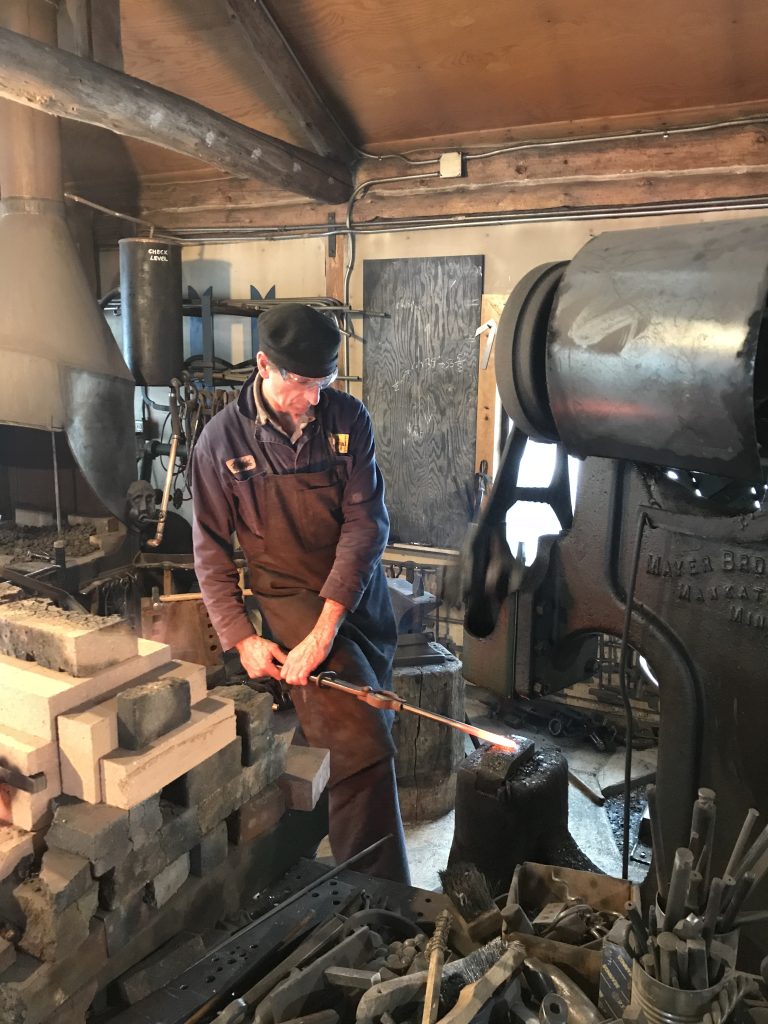
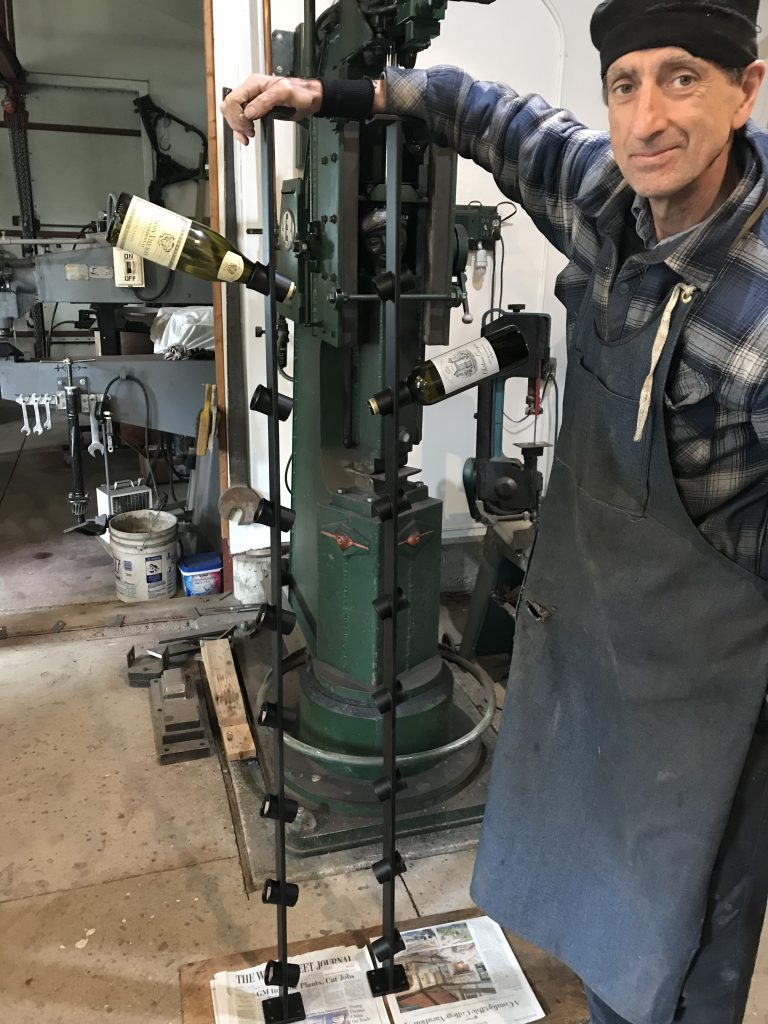
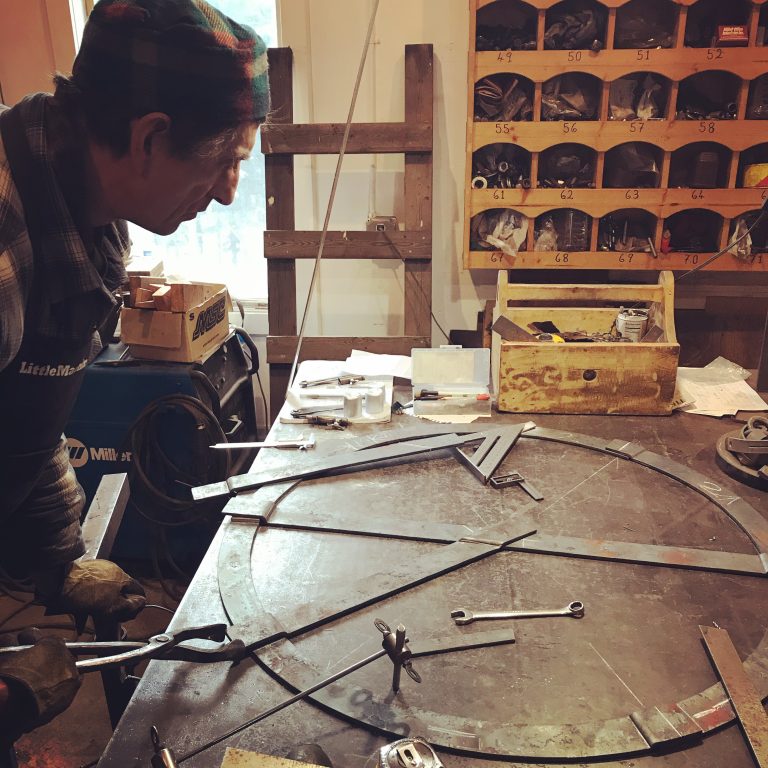
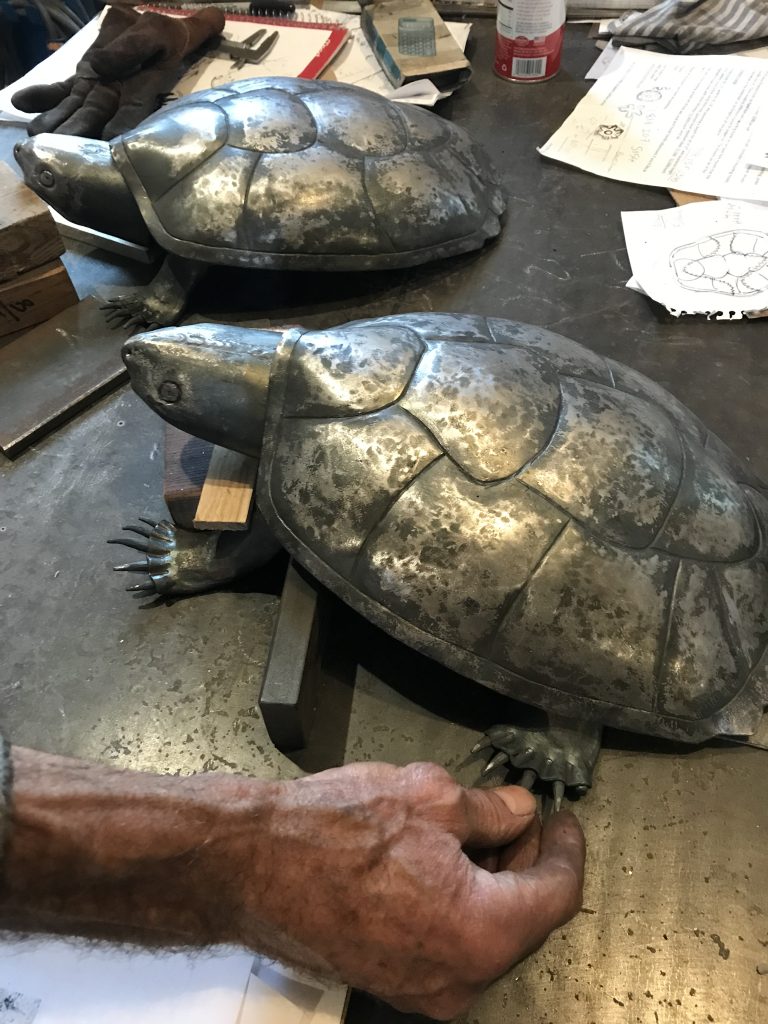
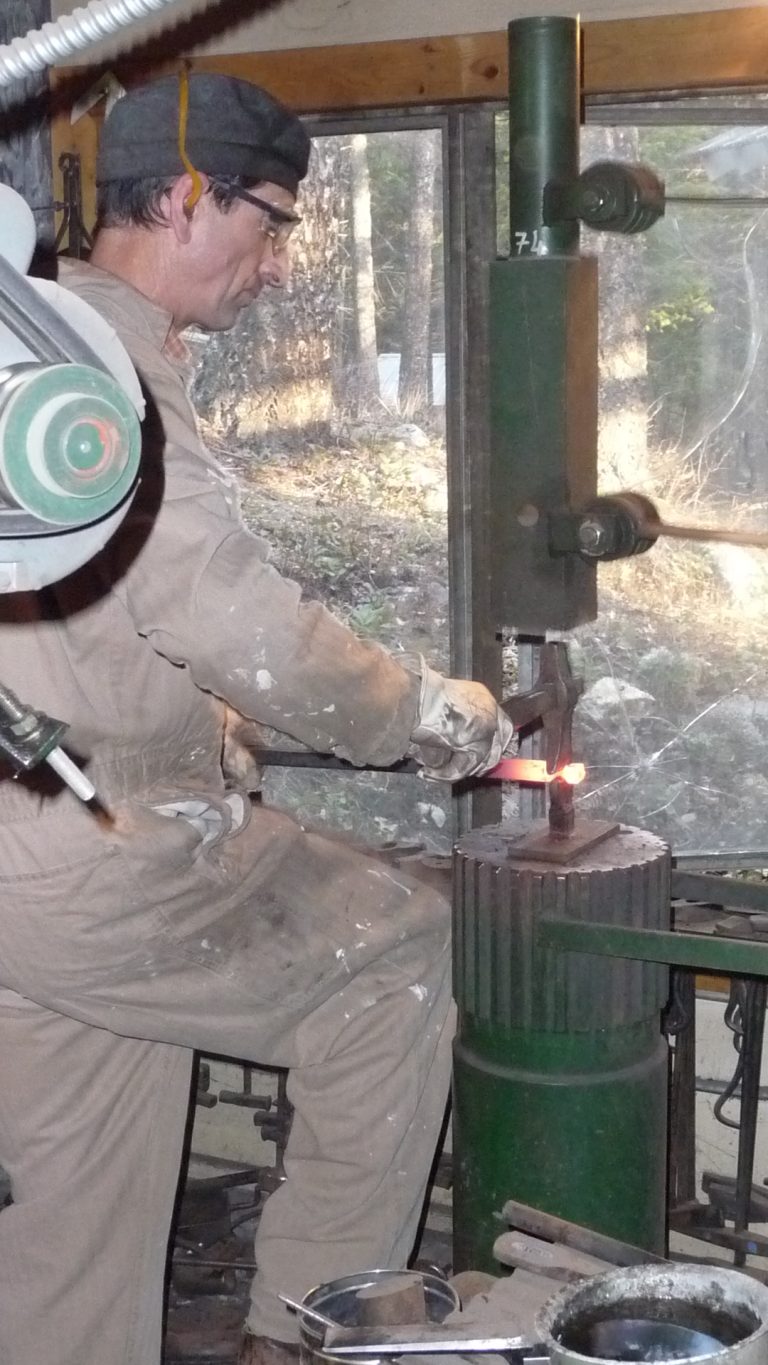
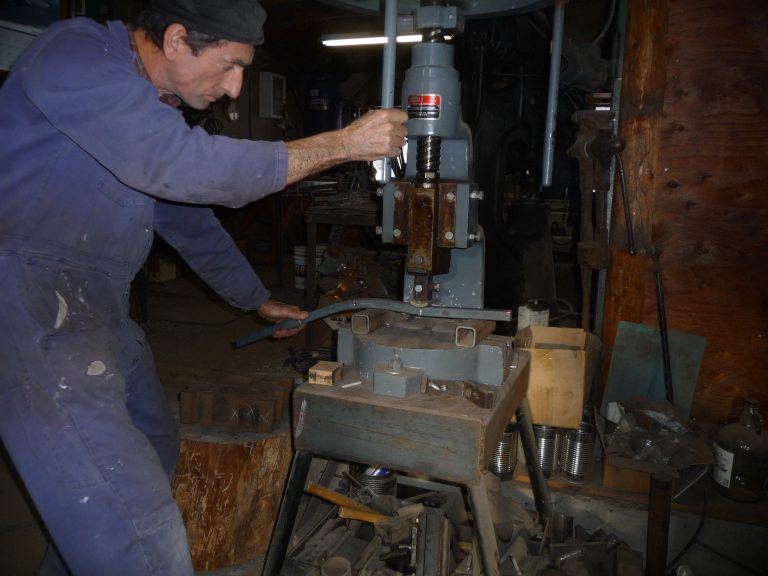
Session 1
Blacksmithing Fundamentals with Tony Stewart
One- week workshop, June 2 through June 6
This class is designed for people with little or no experience in blacksmithing. We’ll cover the basic theory and practice in the craft, introductory metallurgy, and basic tool design and use. Each day will involve demonstrations of basic techniques and projects, with most of the time spent with students working on projects that involve practice of the foundational techniques. We’ll learn how to draw out material, square and round it effectively, upset it, make basic joints, punch and drift holes, and elementary forge welding. Students can do personal work based on the demonstrations, and are also encouraged to come with ideas of things they would like to make. This class will prepare students with less experience for the intermediate classes to follow.
Skill level: Basic
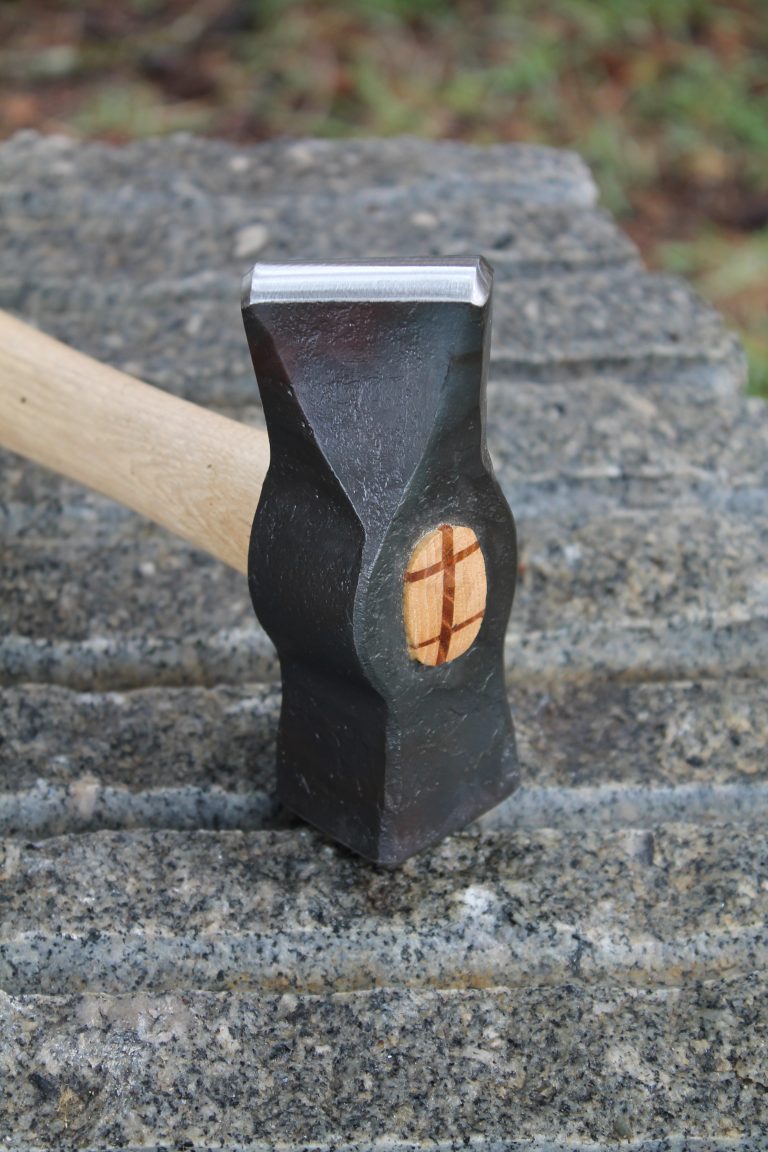
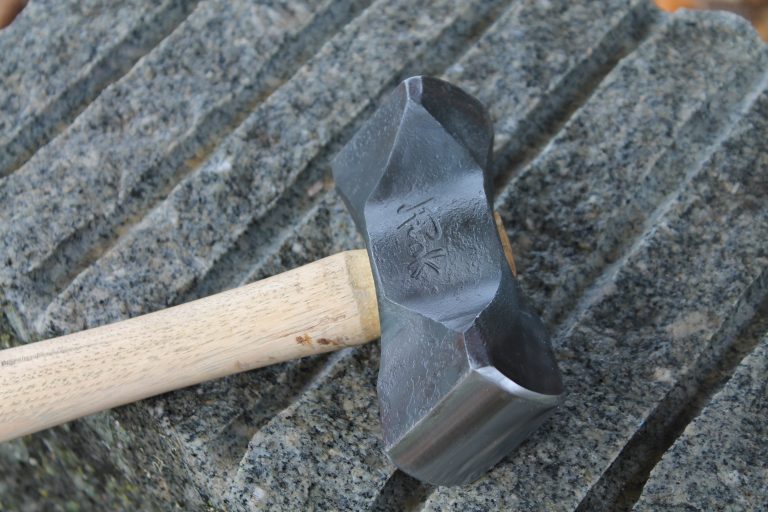
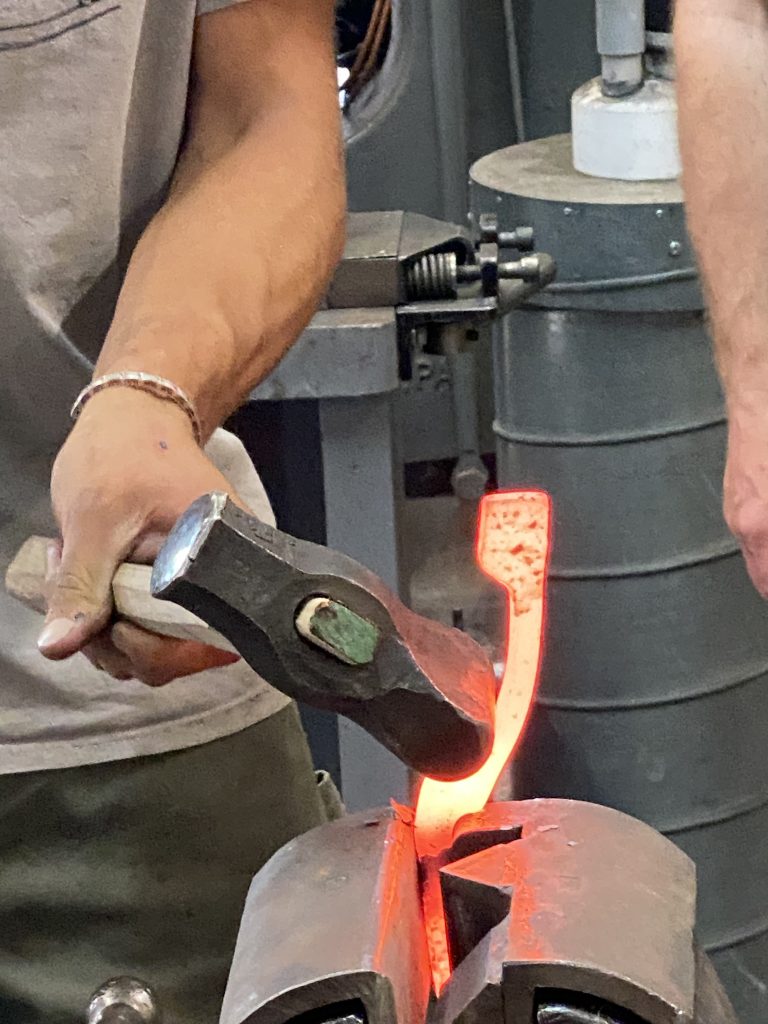
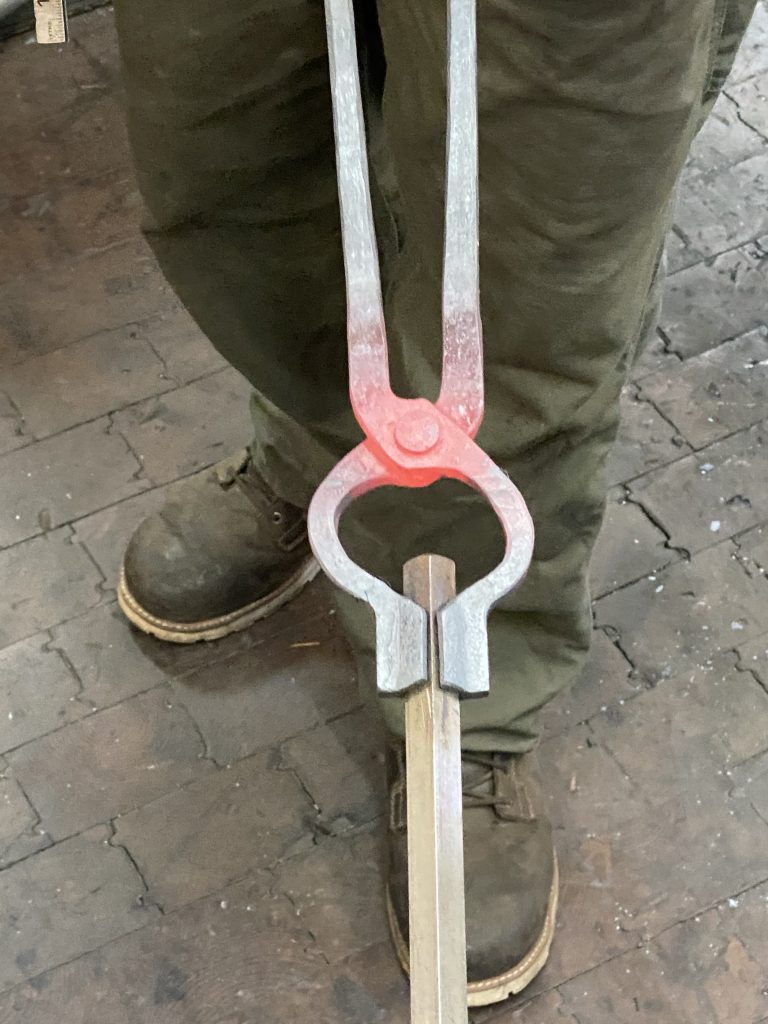
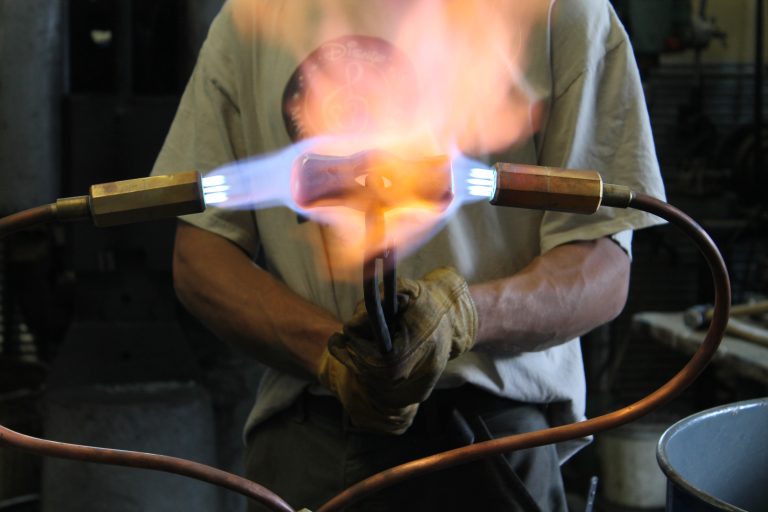
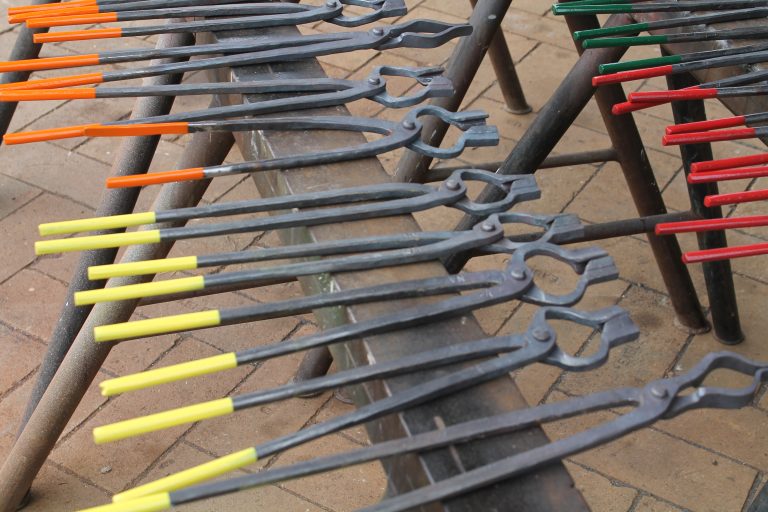
Session 2
Hammers and Tongs with Jeffrey Funk
One- week workshop, June 9 through June 13
This one-week workshop will be focused on these two absolutely essential tools for blacksmithing. Pared down from the more expansive two-week Blacksmith’s Tools class held in previous years, we’ll focus on the design and forging of hammers and tongs that are better than you can buy, using fundamental blacksmithing skills. We’ll use both power hammers and hand hammers, along with sledge hammer striking work to do the hole punching and drifting. Jeffrey’s approach to the form, forging, and heat treating of hammers has been widely appreciated in the blacksmithing community, and here is your chance to dig deep into it. Students can expect to take home several hammers and a selection of tongs, along with the skills to make more.
Less experienced folks will be admitted with the consent of the instructor.
Skill level: Intermediate to Advanced
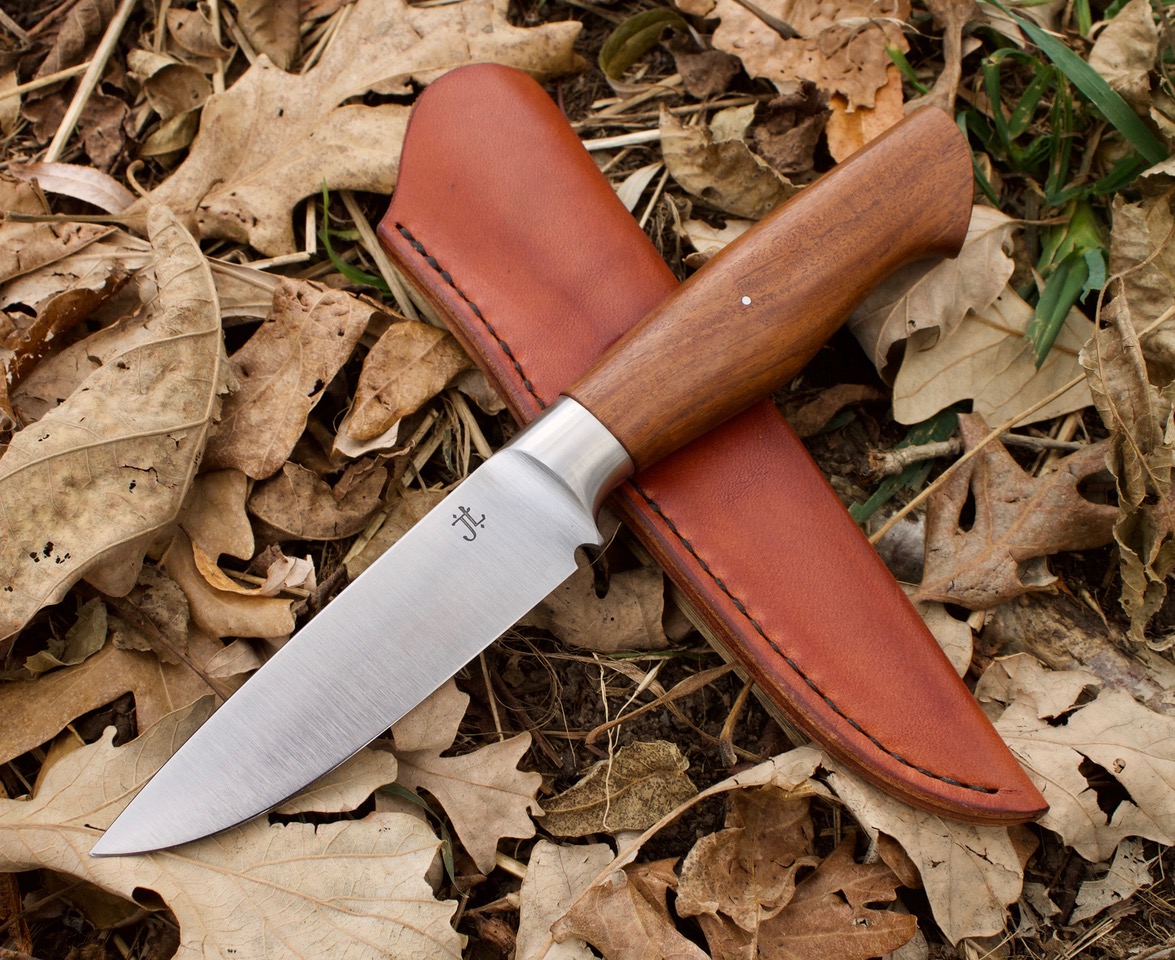
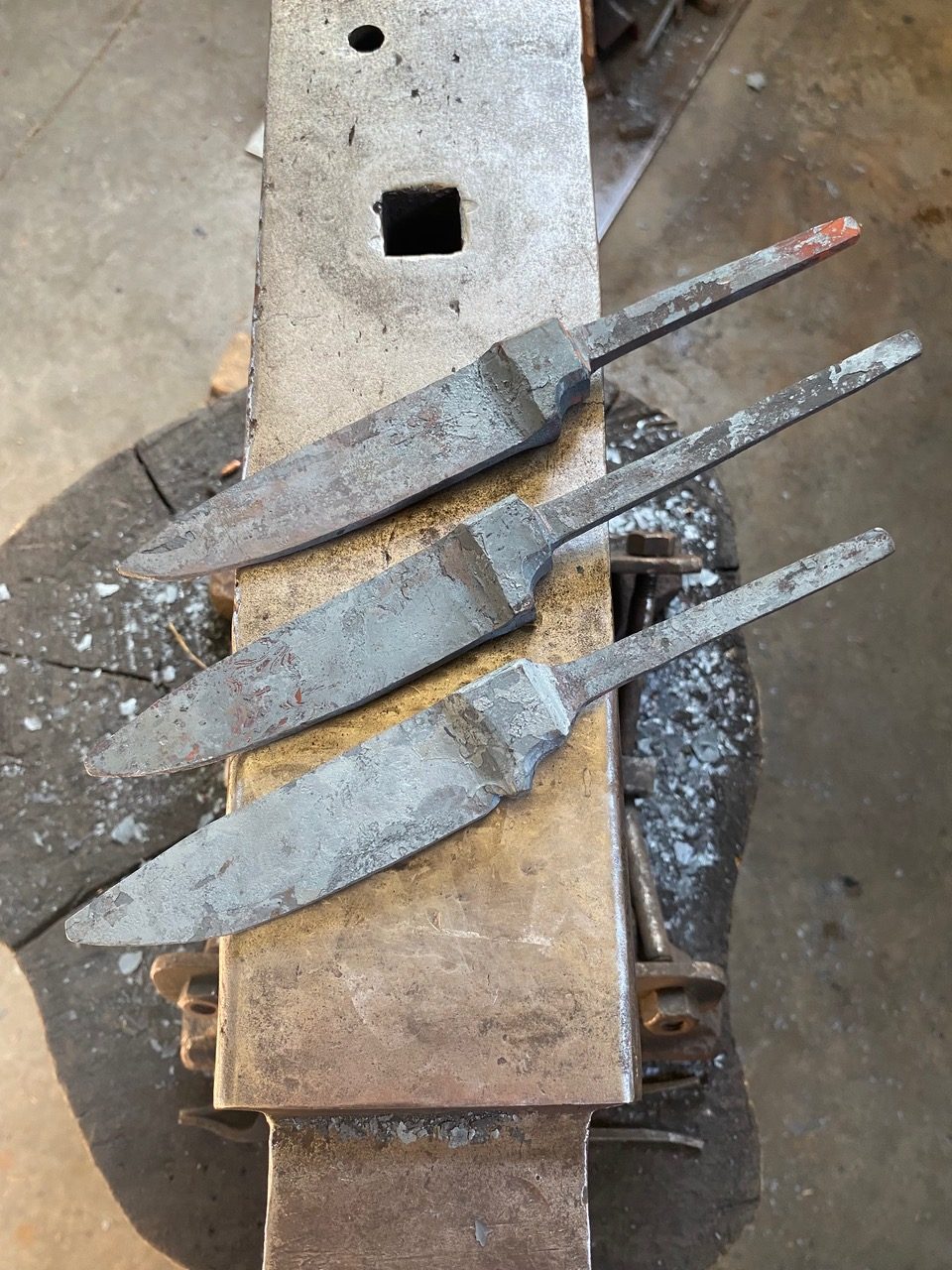
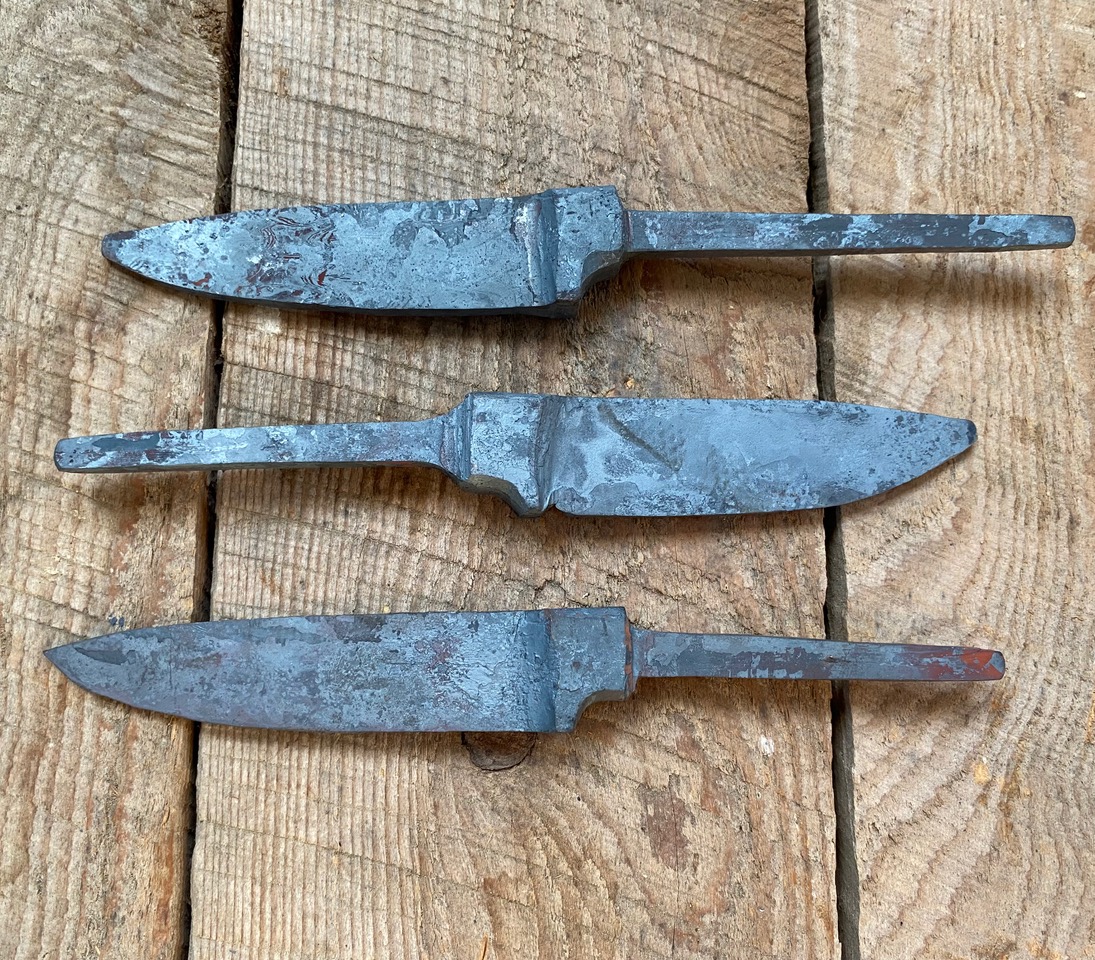
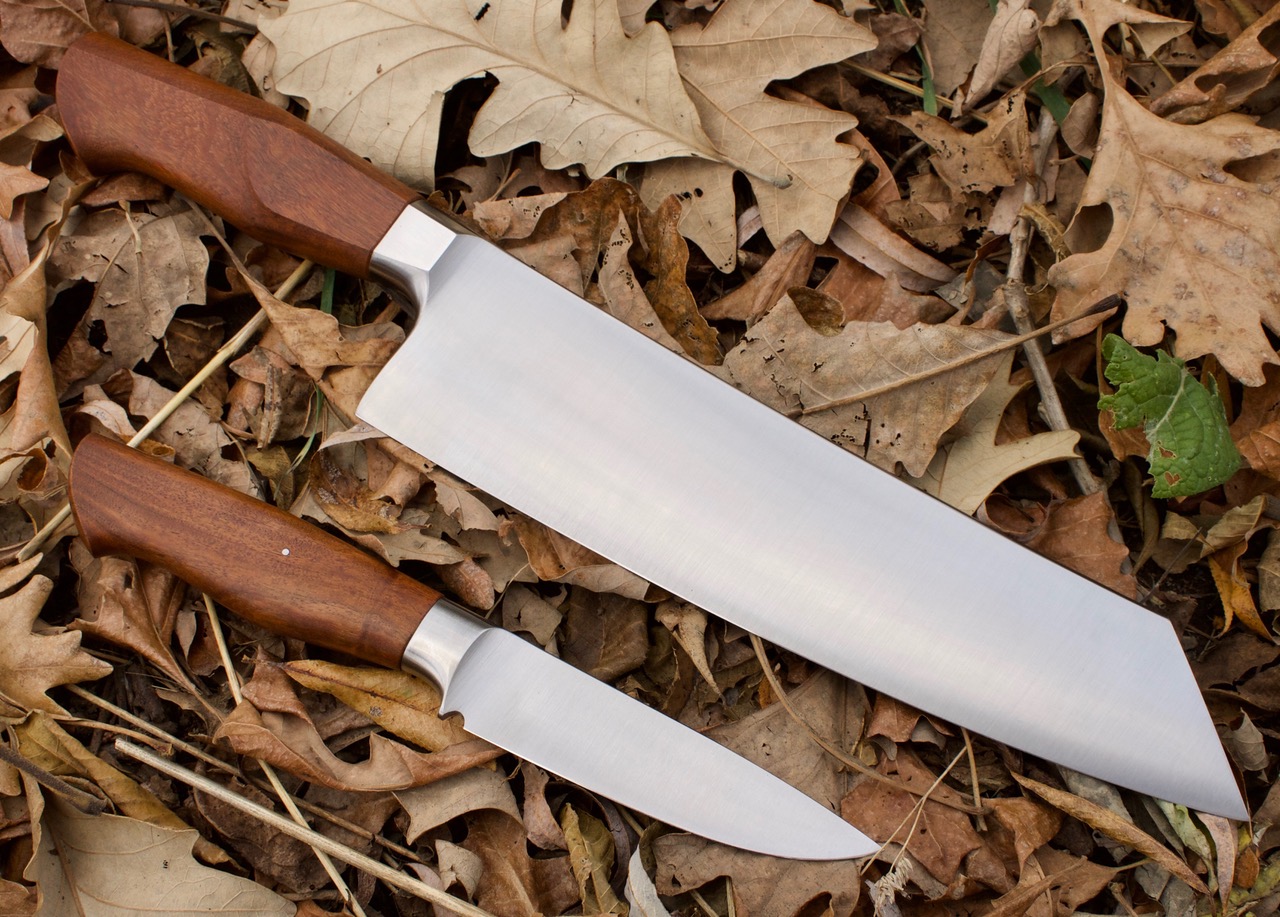
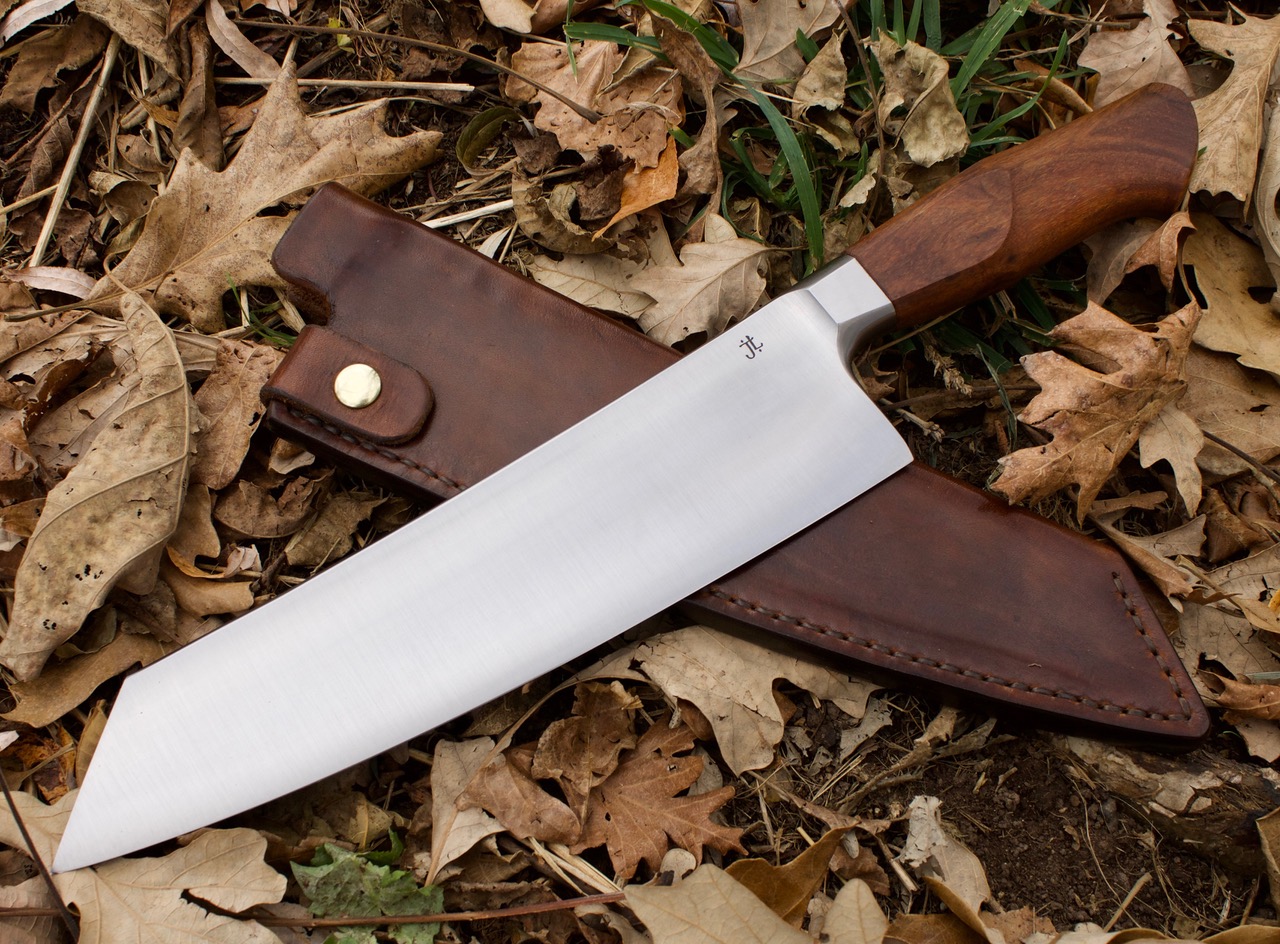
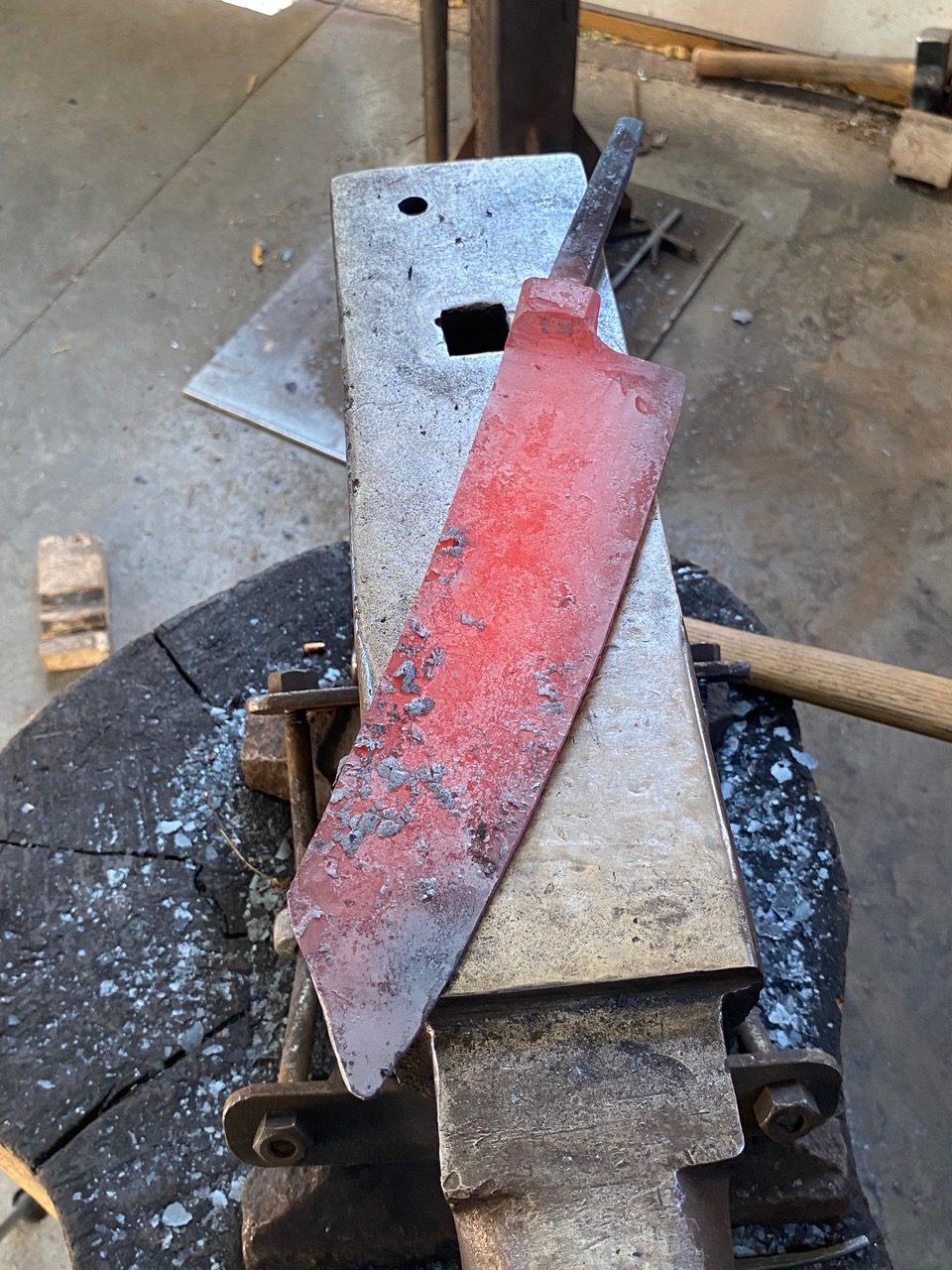
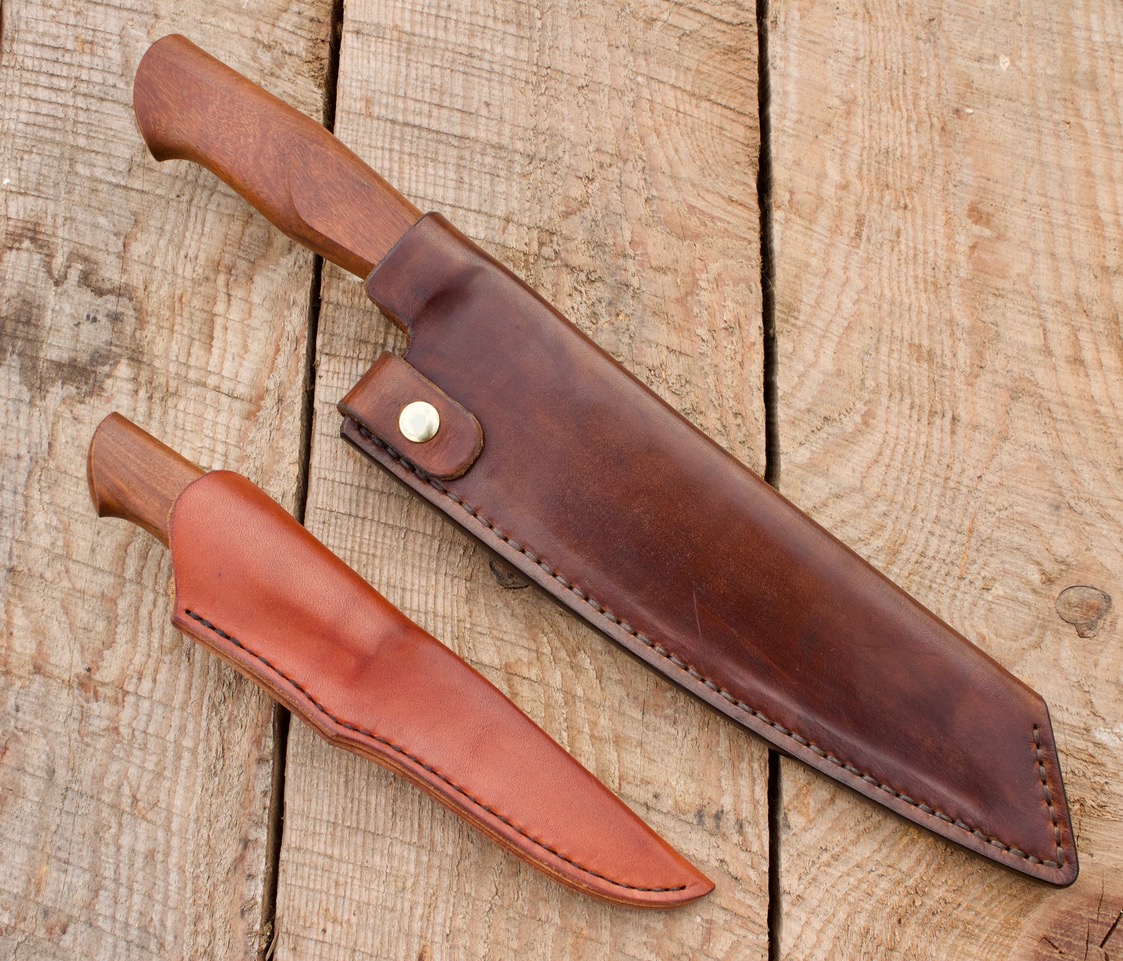
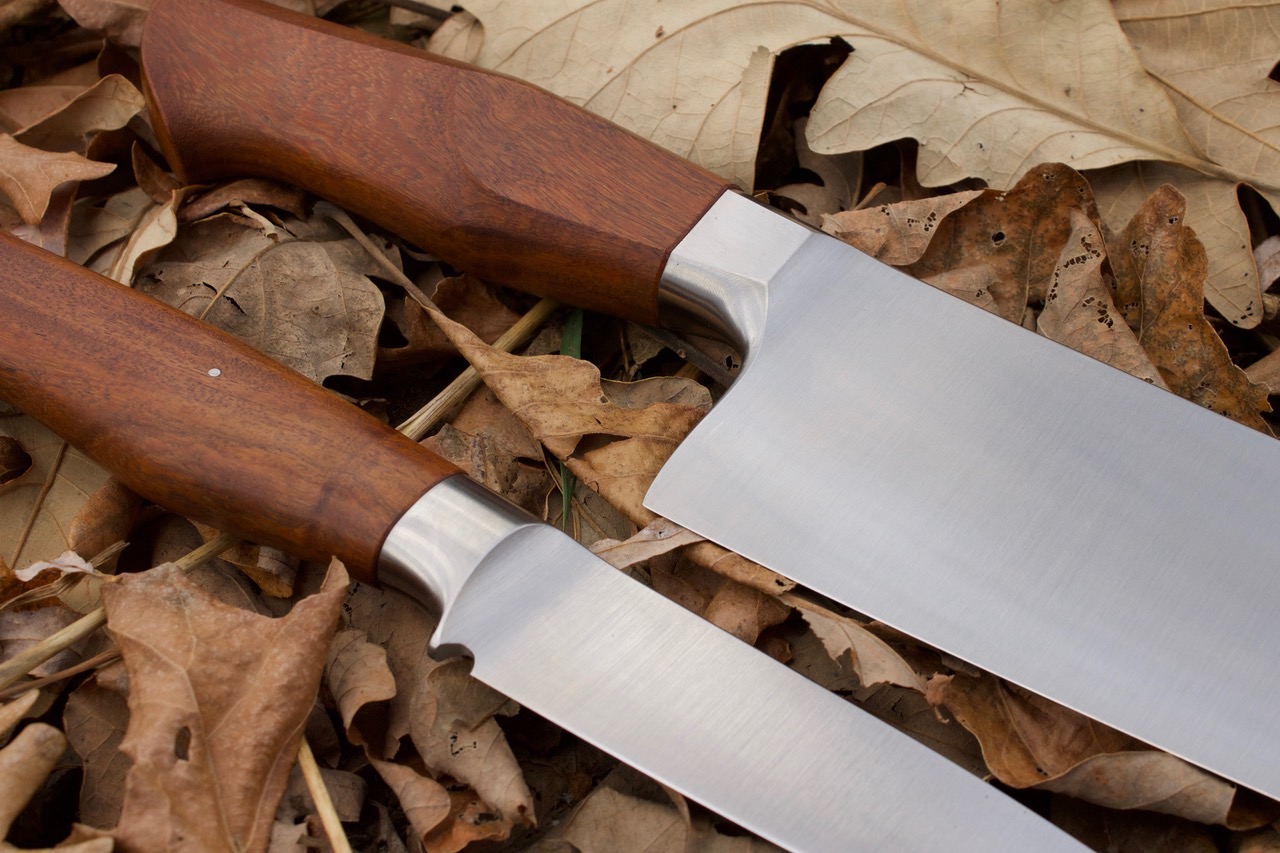
Session 3
Knives for the Outdoors with Jordan LaMothe
Two- week workshop, June 16 through June 27
Whether camping, hiking, hunting, or foraging, a knife is one of the most important tools to carry in the wilderness. In this two week class, students will have the opportunity to forge a variety of knives for use in the field, including a hunting knife for everyday tasks and skinning game, a camp knife for chopping firewood and clearing brush, and a small chef knife for prepping camp meals. The class knives will feature forged integral bolsters and guards, and students will be able to explore both hidden-tang and through-tang construction to affix handles on their blades. To conclude the class, students will have the opportunity to craft leather sheaths for their knives, to carry them on their next outdoor adventures.
Skill level: Basic through Advanced
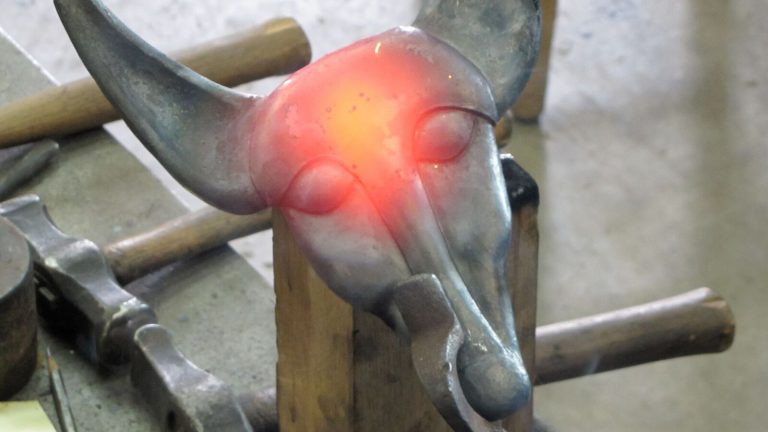
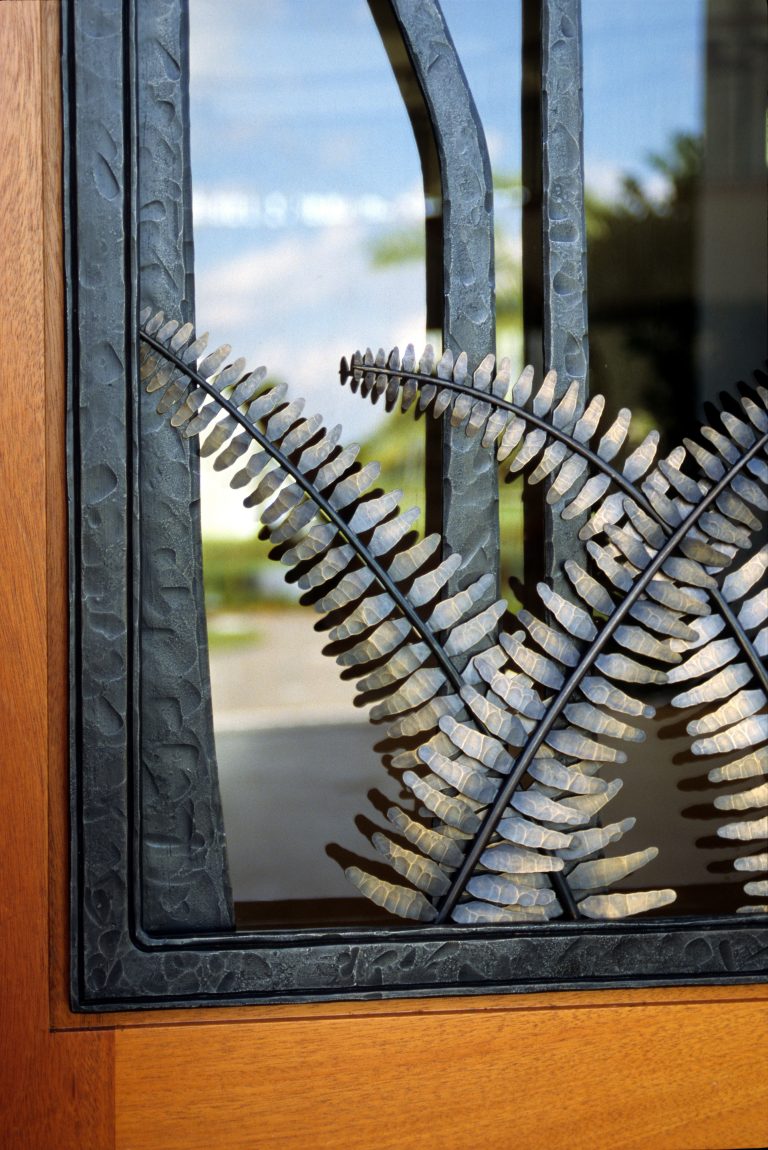
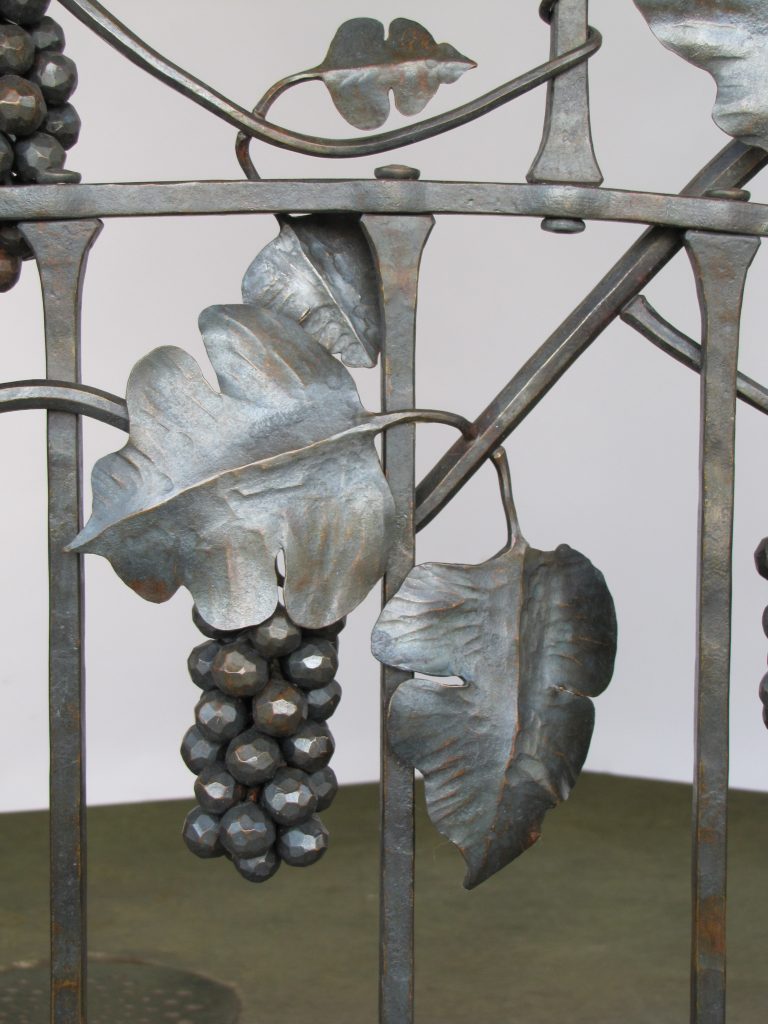
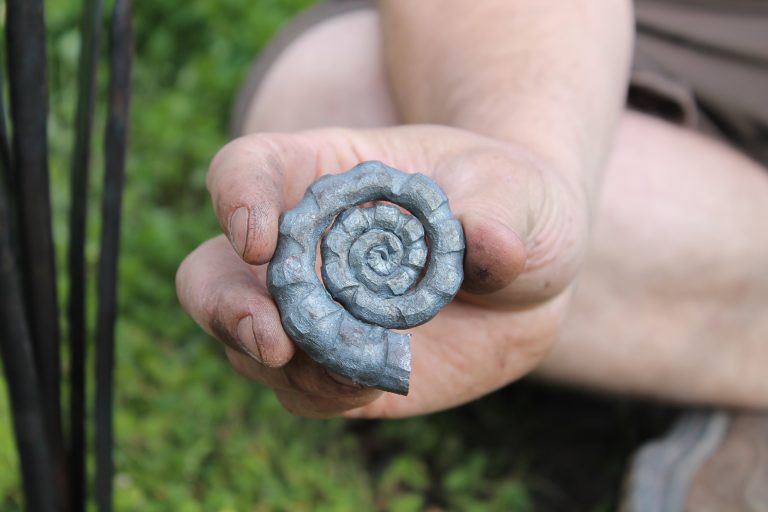
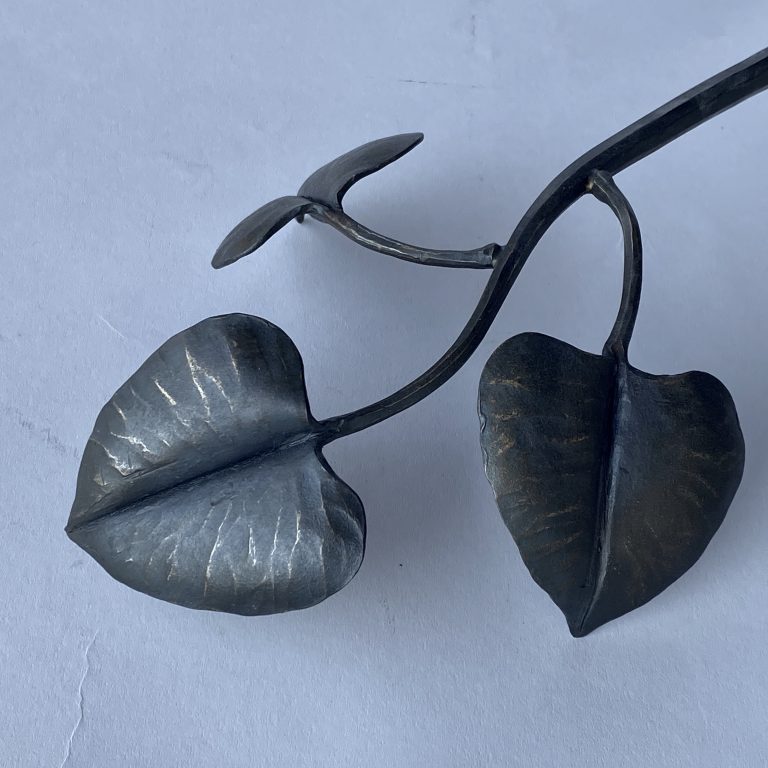
Session 4
Forging from the Natural World with Jeffrey Funk
One-week workshop, July 7 through July 11
One could argue that all art and craft has its origin in the natural world around us. Inspiration from nature is part of the human experience, and the craft of blacksmithing is uniquely poised to translate impressions from nature into objects of both function and whimsy. In this class we will begin at the source, studying details and forms around us, and using the forge to bring these ideas into the world in iron. All of the basic techniques of blacksmithing will be used, including drawing, upsetting, punching, fire welding, etc. We will aim to conceive our work without reference to what has been made before, but rather simply joining the natural world to the repertoire of techniques we have to interpret it.
Skill level: All Welcome
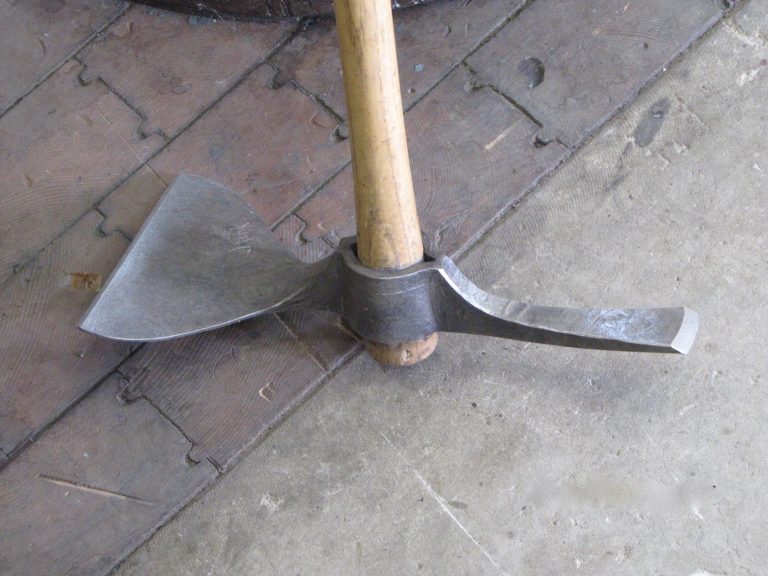
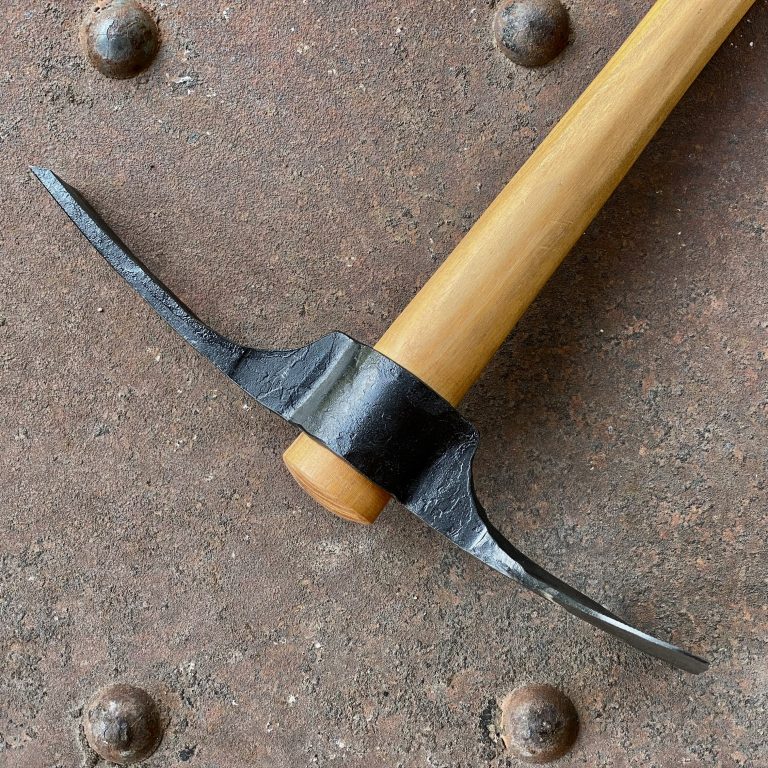
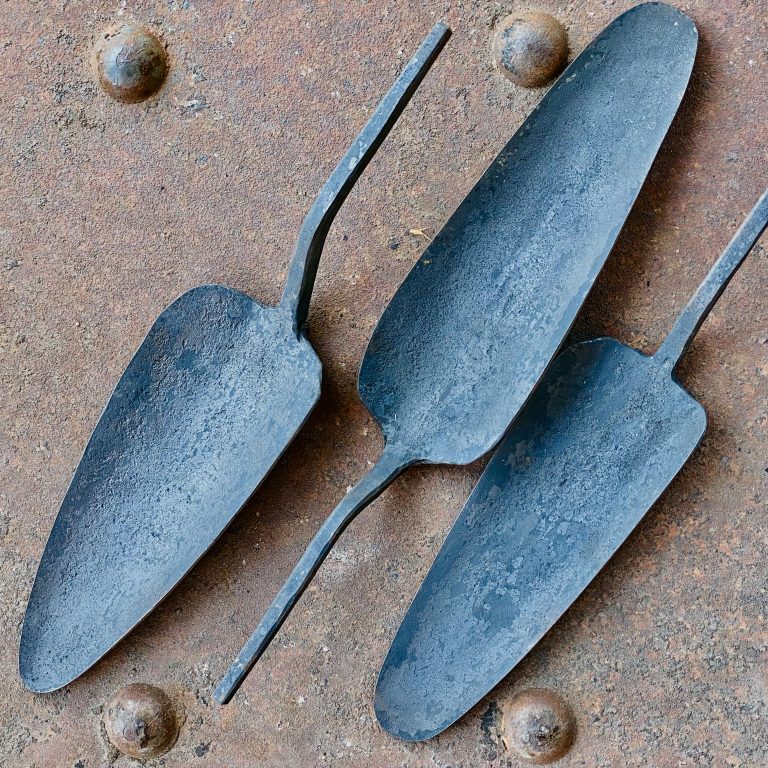
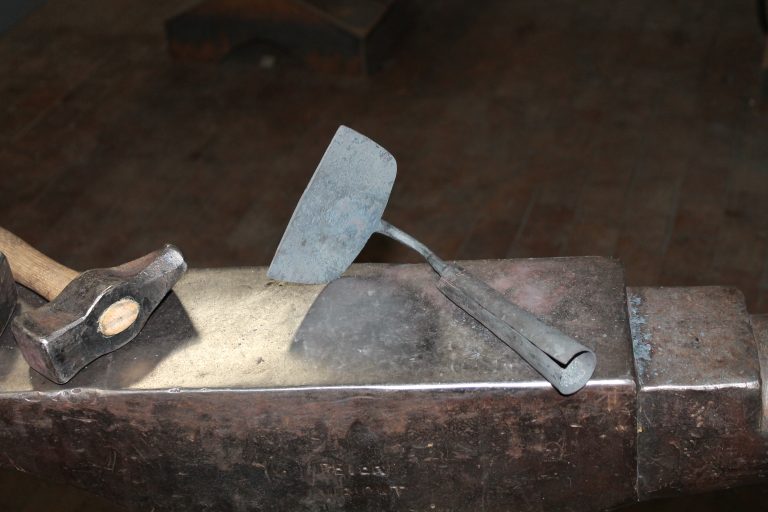
Session 5
Tools for Farm and Garden with Jeffrey Funk
Two-week workshop, July 14 through July 25
In what has become a foundational workshop for this school, here we will indulge in the design, forging, and heat treating of all manner of hand tools for use in the garden or small farm. Here we can make tools of the highest quality, exactly as we want them, and disregard the pile of poorly designed and made tools served up by twenty first century industrial production. We will study good tools of the past, along with some creative modern offerings. Participants can expect to make trowels, hoes of various types, gardening “adzes”, possibly forks for the ambitious, as well as special tools of their design. Basic metallurgy for this type of tools will be covered, along with heat treating and finishing. Expect to take home, in addition to the new skills you learn, a nice selection of beautiful and functional tools for use in growing food.
Beginning students admitted with permission of instructor
Skill level: intermediate to advanced

Session 6
Blacksmithing with Mark Aspery
One-week workshop, July 28 through August 1
Come and join us for a week with the prolific and well- known teacher, Mark Aspery. Mark has been a force in blacksmithing education for many years throughout the West, and in this class he will build on the ABANA national curriculum to cover an array of essential techniques. “Forge welding, punching and drifting, tool-making all feature strongly in this class, with gnashing of teeth, frustration and sharp intakes of breath well represented.” Don’t miss this rare opportunity to study with Mark here in Montana.
Beginning students admitted with permission of instructor
Skill level: advanced beginner to intermediate,
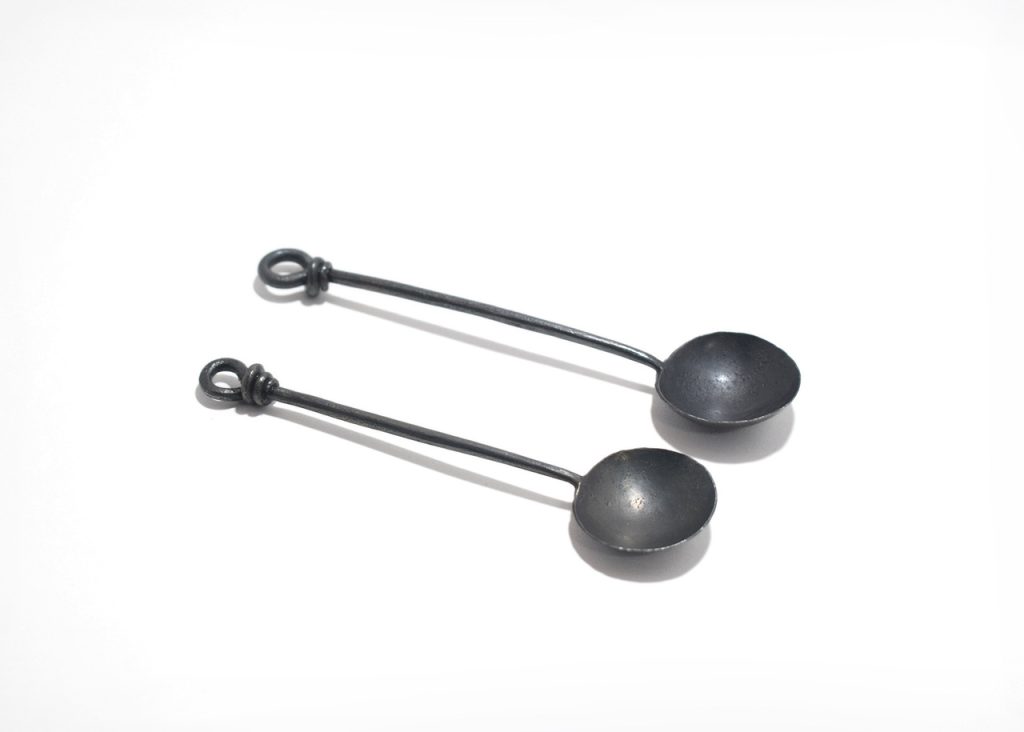
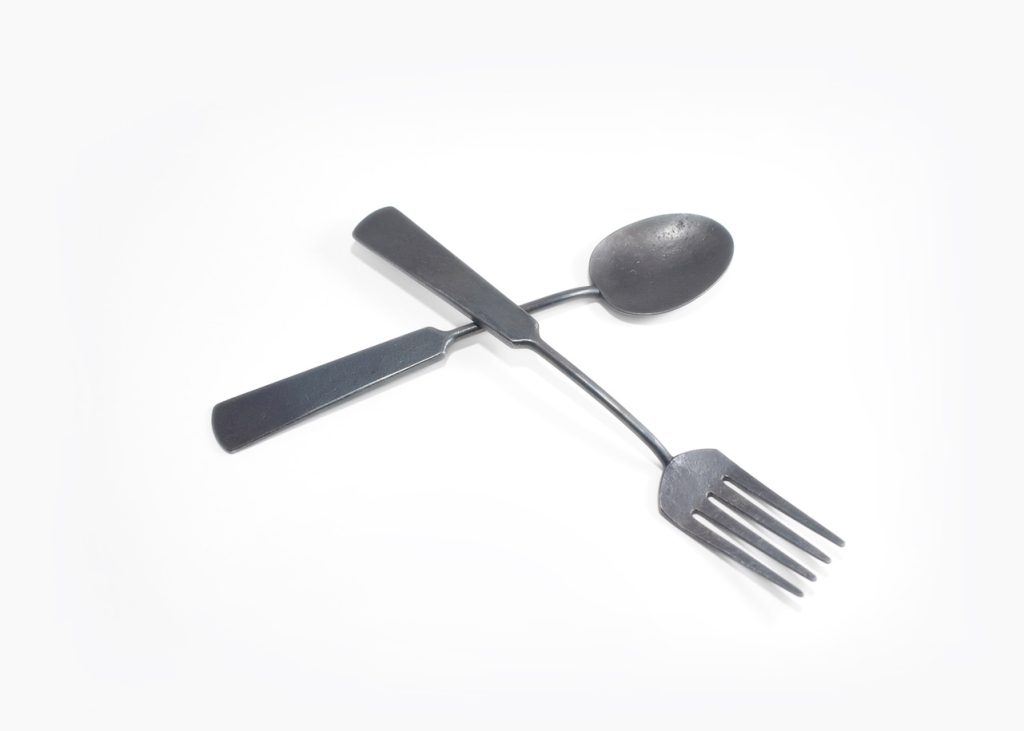
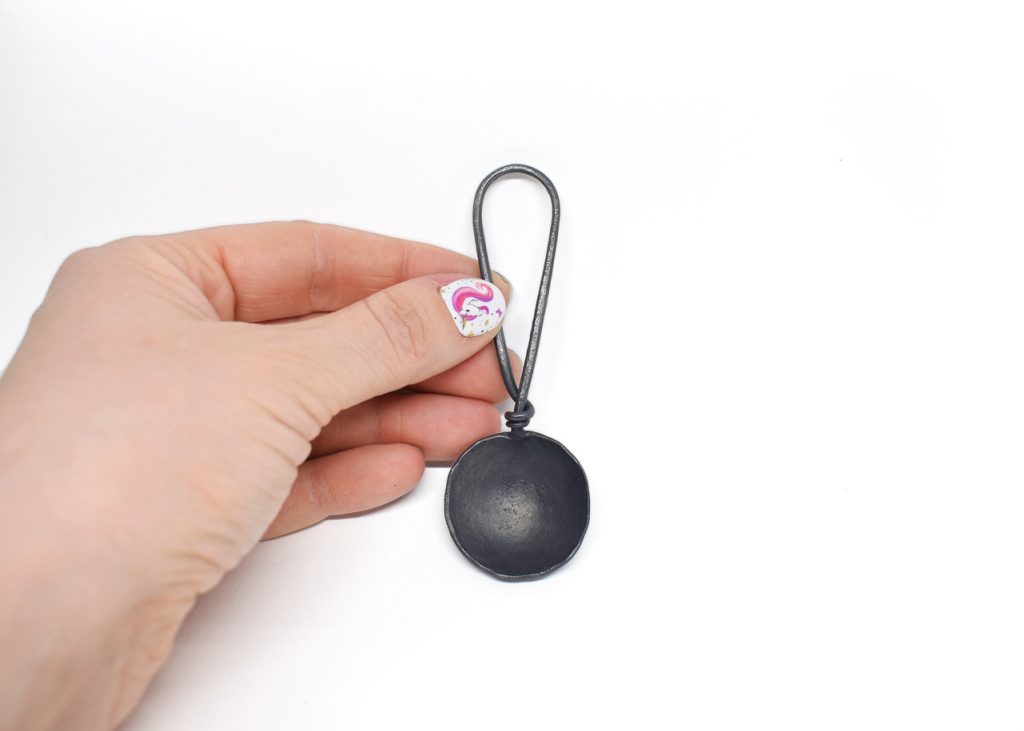
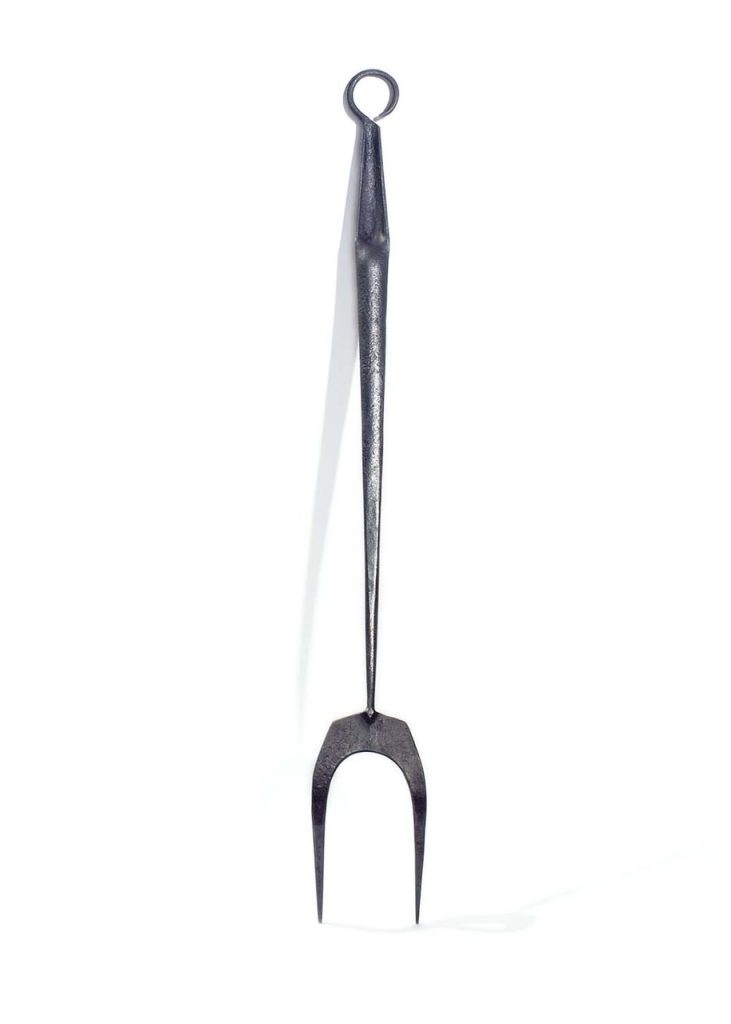
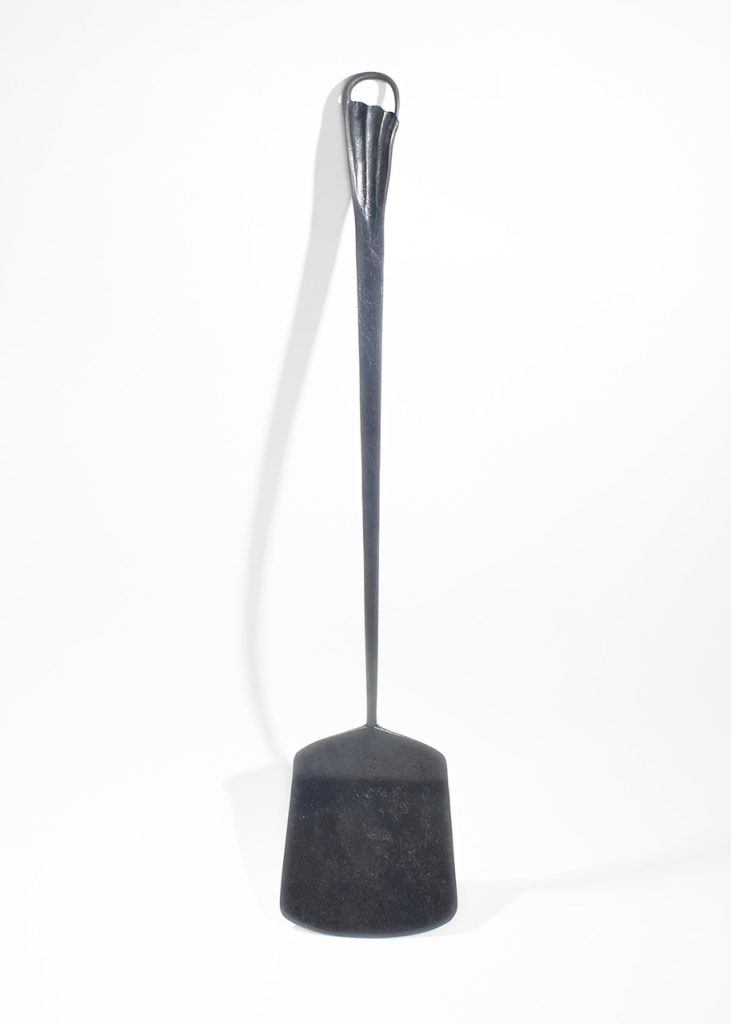
Session 7
Utensil Forging: Design and Refine with Anna Koplik
Two- week workshop, August 4 through August 15
Throughout this workshop, students will learn to make their own functional and decorative spoons, spatulas, and more with a focus on refinement, design, and delicate forging. The class will cover the basics of forging, forming, bending, and file work to make single piece steel and iron utensils. Students will be encouraged to push themselves on accurate forging and explore their own unique details and designs. Class will start with demos and projects, aiming to build technique and introduce process. Then class will expand to encourage more independent designing and challenge precise forging skills. This class is great for those new to blacksmithing or for people with prior experience who want to build their forging accuracy and design skills. Come learn to make your own unique hand-forged utensils in a fun, enthusiastic, and inclusive environment!
Skill level: All Welcome
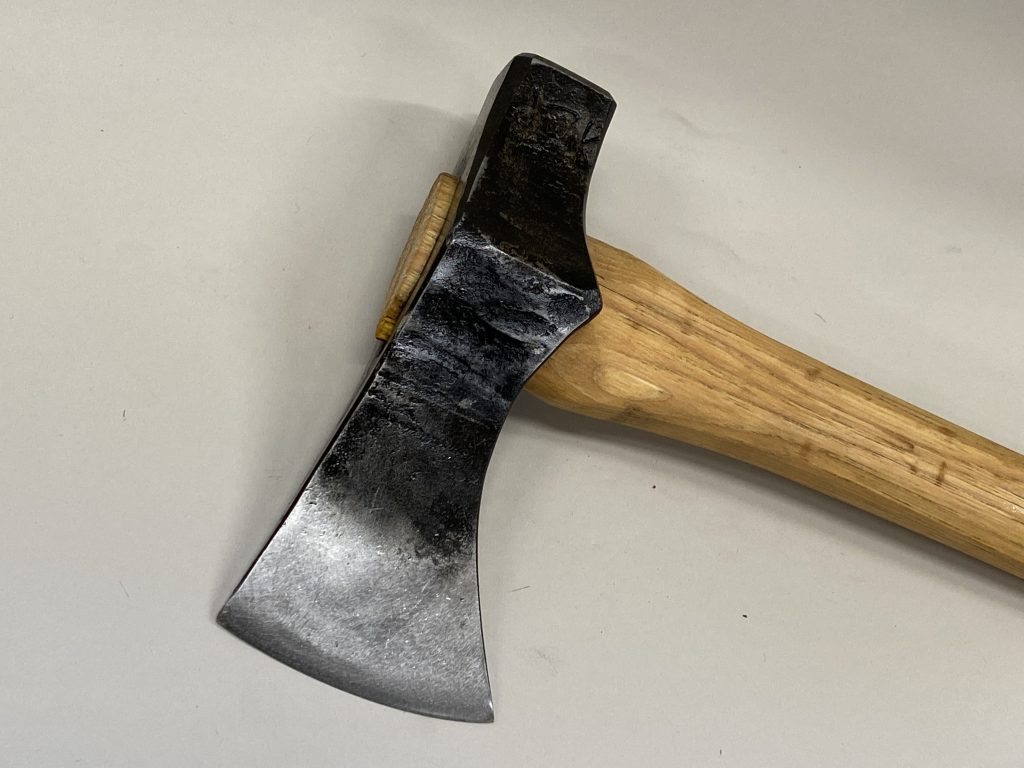
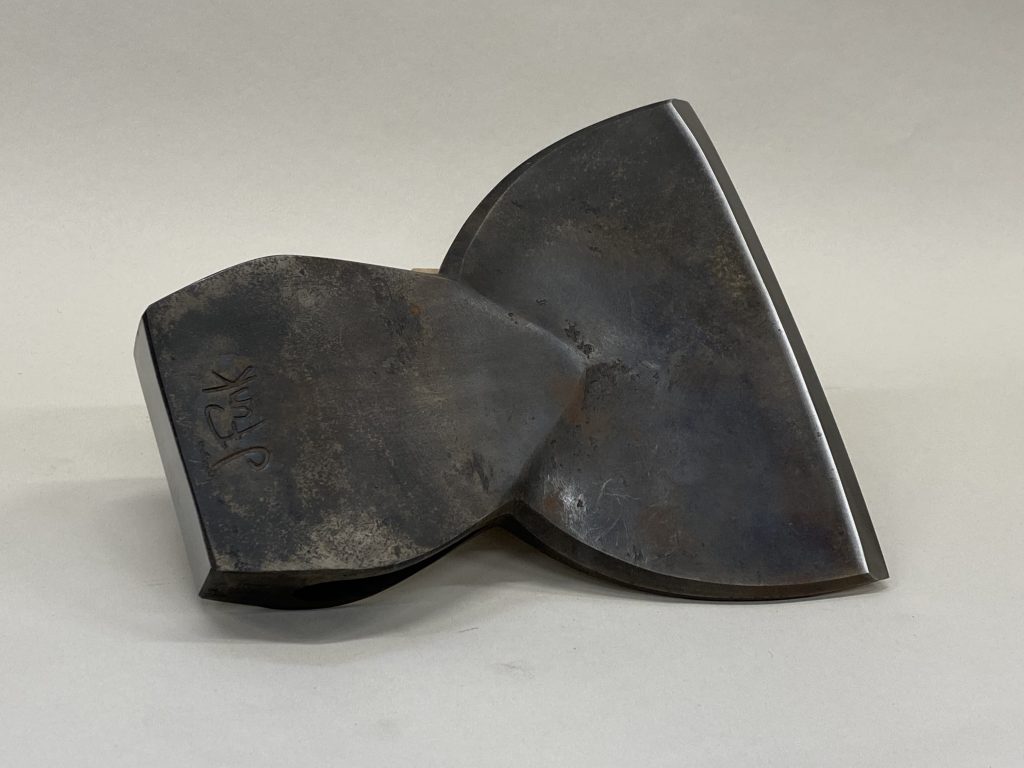
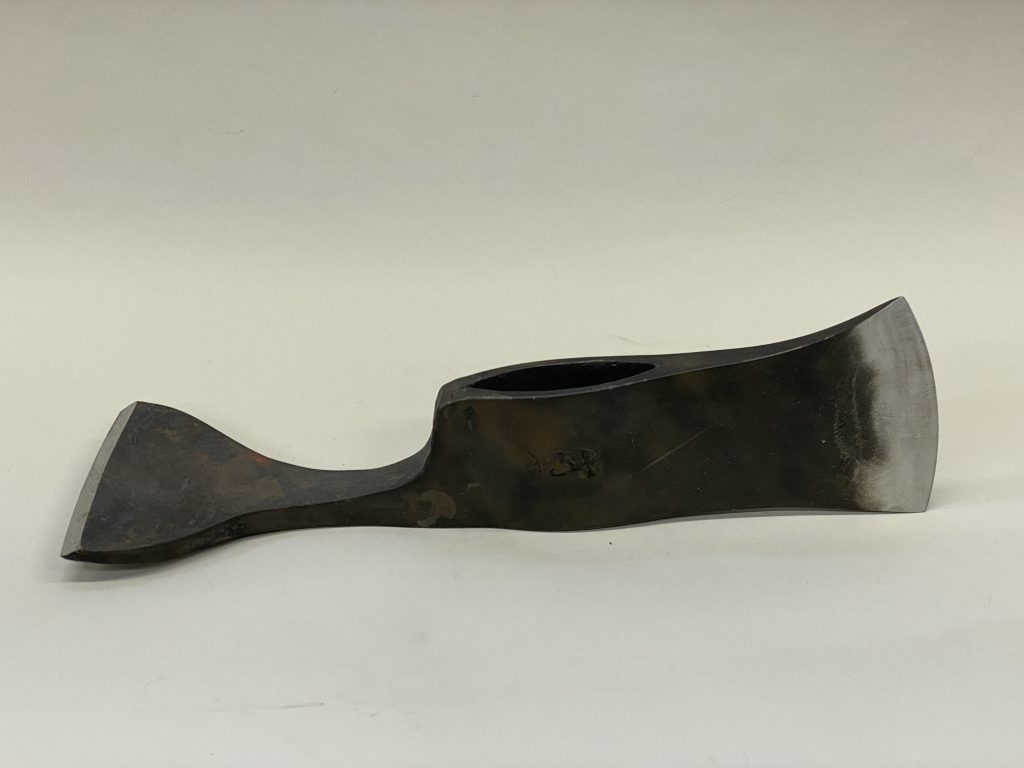
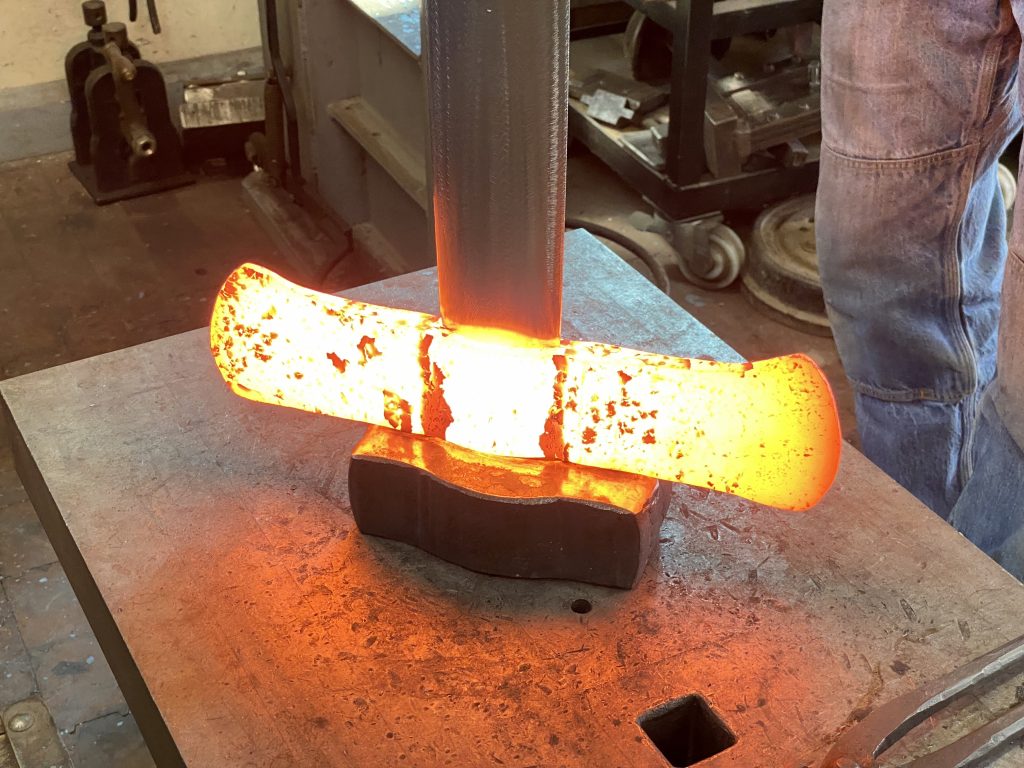
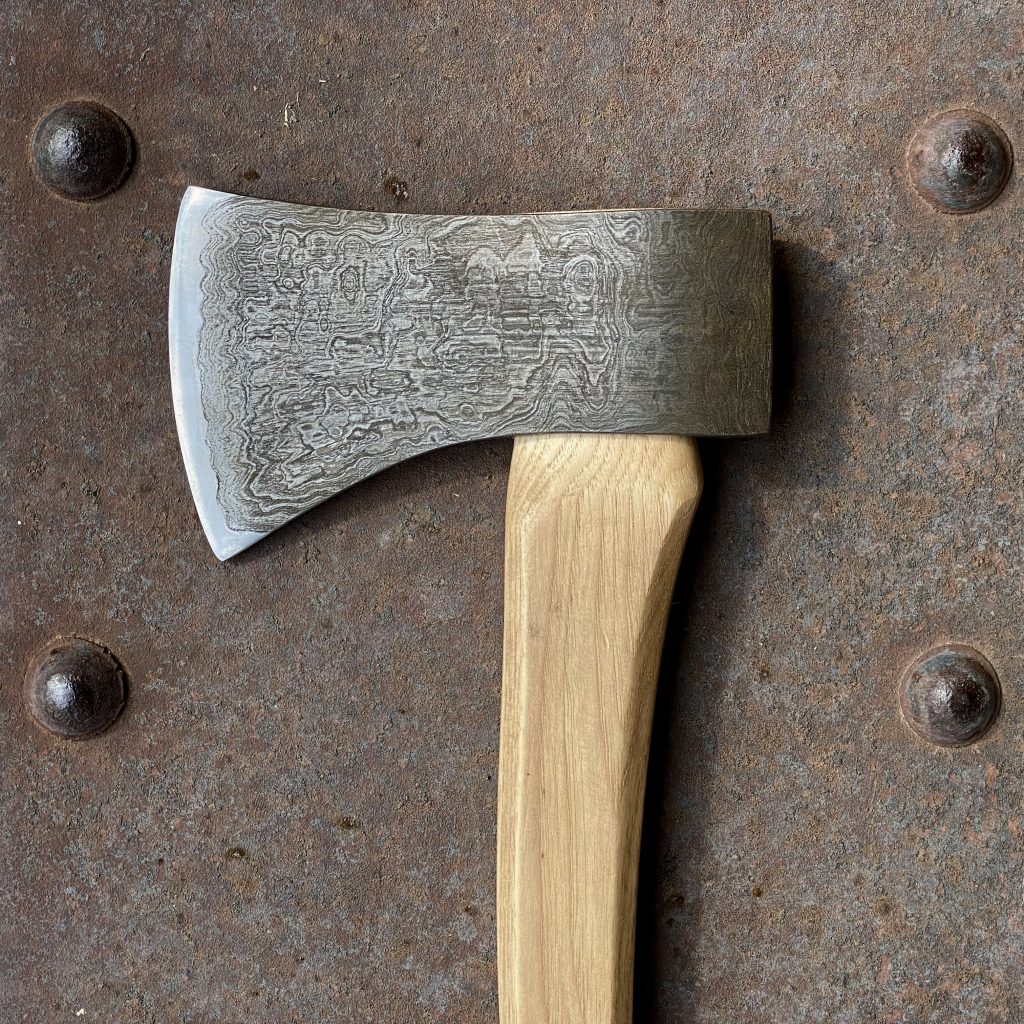
Session 8
American Axes with Jeffrey Funk
One- week workshop, August 18 through August 22
This class will explore the history, design, forging, and use of axes for felling timber and working wood. Before the advent of the chainsaw spelled the end of the axe as a primary tool for felling trees in America, this ancient tool reached its most effective forms for use by both the woodsman and the carpenter. We will focus on good geometry and metallurgy to create tools that are both beautiful and practical. A variety of forms will be demonstrated including a folded wrought iron single bitted axe, a classic Northwest style double bitted axe from one piece, and a single bitted axe forged from one piece. Students can expect to finish three axes (or more for ambitious participants). If time allows, finished axes can be hung on handles made here from hickory blanks.
Skill level: Intermediate to Advanced
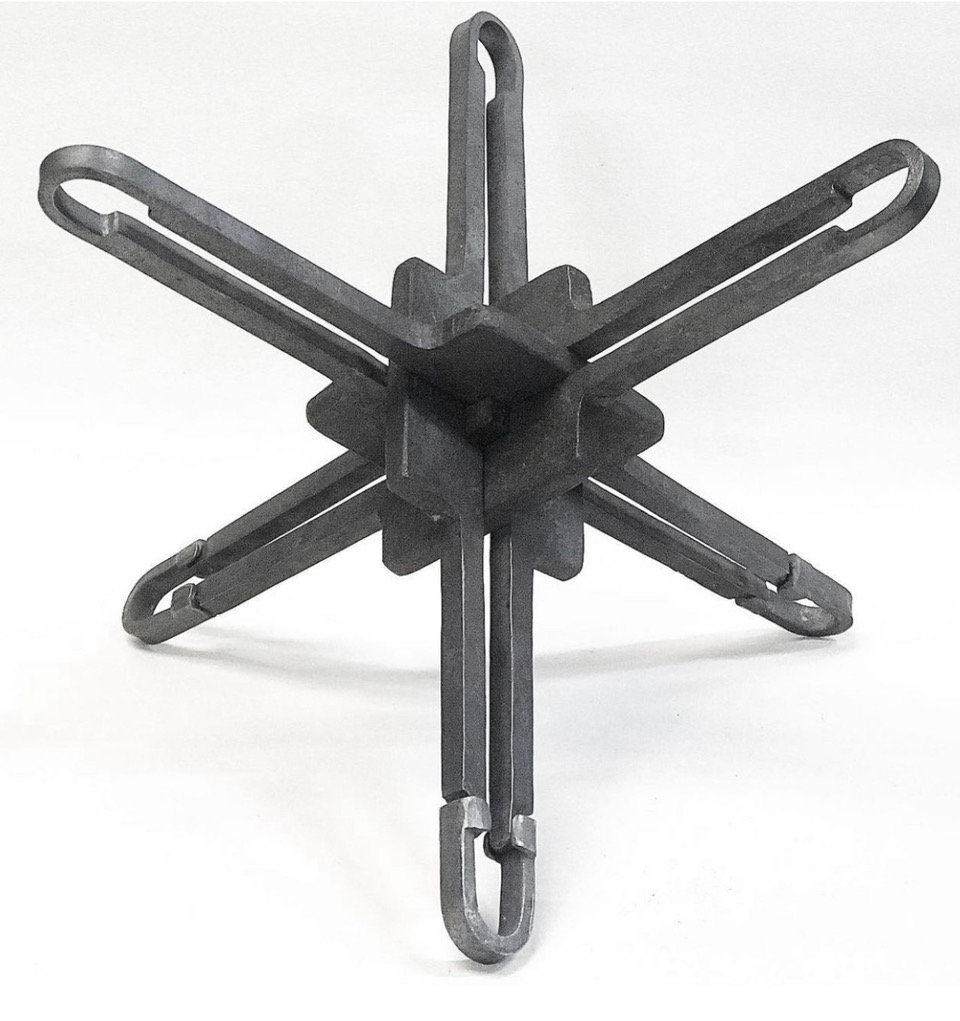
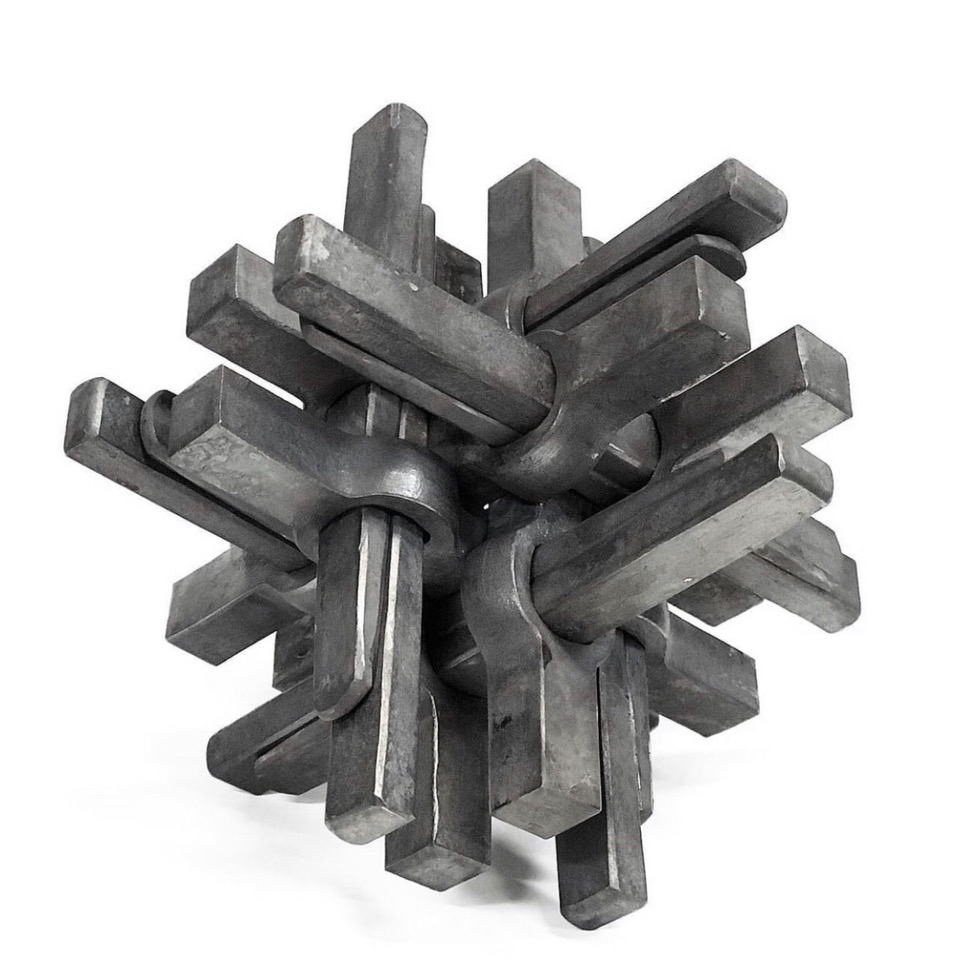
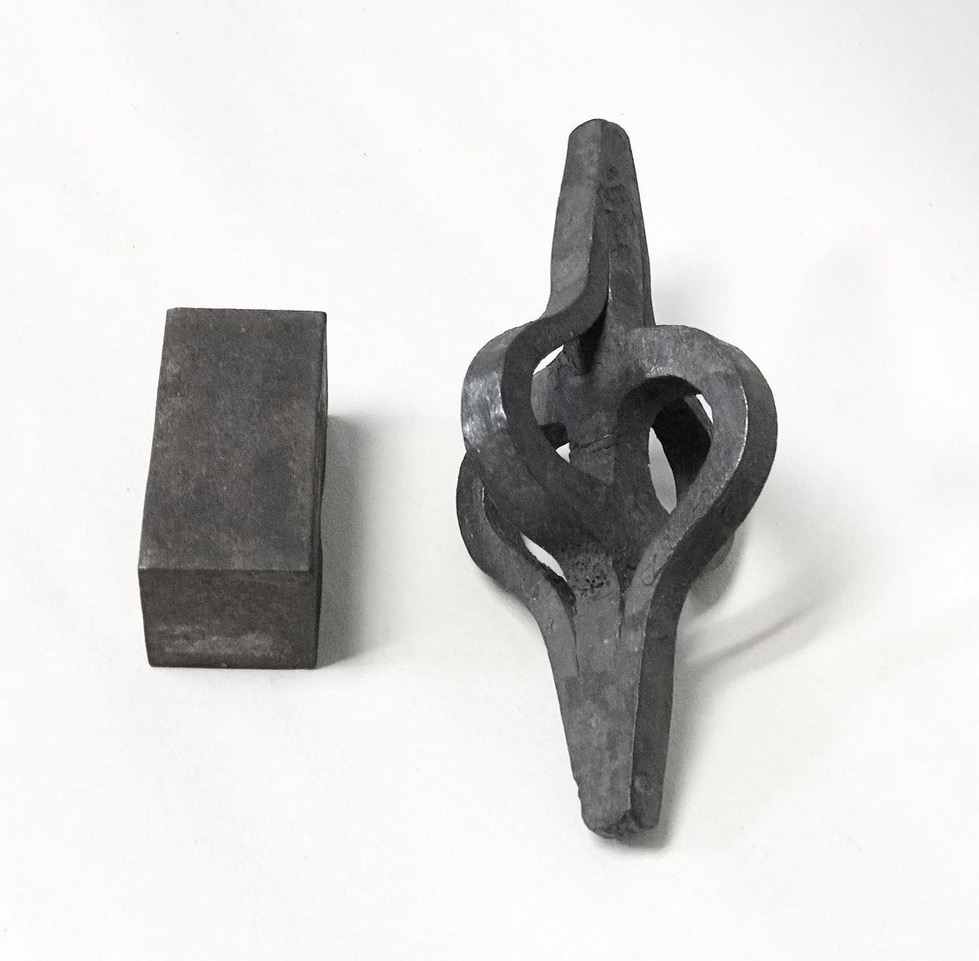
Session 9
Zen and the Art of Hammer Swinging with Peter Braspenninx
One- week workshop, August 25 through August 29
This class will focus on the question why. Why in concept, and why in process. Through instructor led assignments we will cover a variety of techniques and design methods to ask the question, why are you doing that? To find the most direct way to construct and articulate our ideas.
We will be using hand forging techniques with power hammer assistance. Primarily coal forge work for the options it allows in process.
This class is structured so that there will be time for a final project/exploratory forging at the end of the week. So that, based on the information presented, we can apply the lessons to a design of your own voice.
Bring your ideas, an open mind, and a sketchbook. Let’s forge around, and find out. Forgewelding basics up to more advanced methods.
